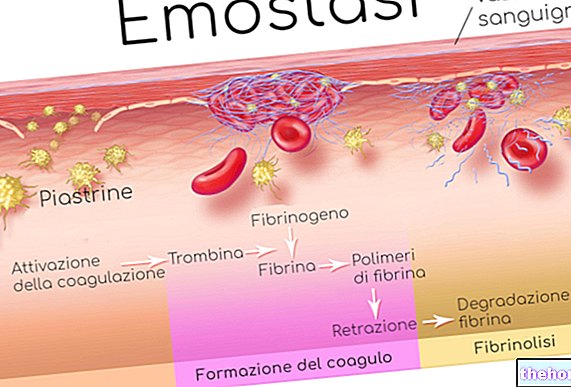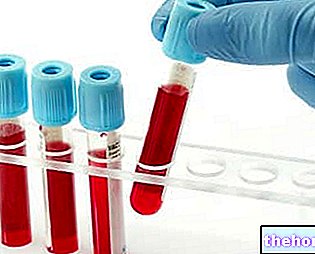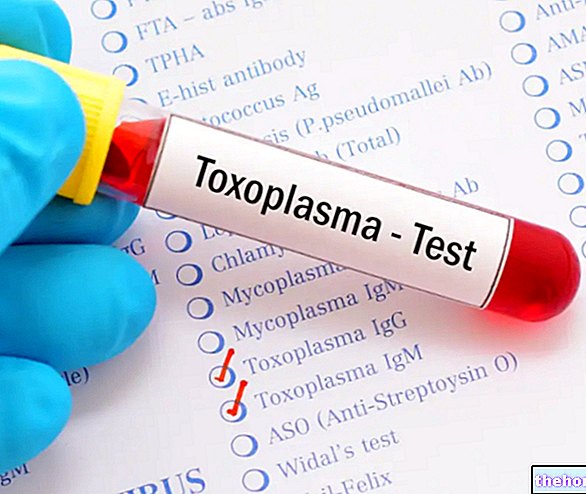Signs and symptoms
The main and earliest symptom of hypernatremia is intense thirst; if this is not perceived or is not satisfied, signs of suffering of the central nervous system appear:
- Lethargy
- Irritability
- Mental confusion
- Seizures
- Coma
accompanied by spasticity, hyper-refelessia, nausea and vomiting. Nervous symptoms are due to dehydration wrinkling of brain cells, which release water to the hyper-osmotic extracellular compartment. For this reason, vascular ruptures with cerebral haemorrhage or subarachnoid haemorrhage may also appear. The signs and symptoms of hypernatremia are all the more evident. the higher the serum sodium concentration and the more rapidly the disorder is established. The rapid increase in plasma sodium concentration, without the brain having the ability to adapt to it, often leads to permanent neurological damage.
In children, hypernatremia can give rise to hyperpnea, muscle weakness, restlessness, insomnia, lethargy and crying with high pitched screams. Further progression of hypersatremia, especially in hypernatremic dehydration, leads the young patient to lethargy, convulsions and coma. .
The acute onset of hypersatremia increases mortality, as well as advanced age is another unfavorable prognostic element. The mortality rate is high for natriemia values higher than 180 mEq / L in acute forms, particularly in adults; this rate is higher than 40% in children and about 75% in adults.
The chronic form of hypernatremia is a little less severe and has a lower mortality. Within 1-3 days from the onset of hypernatremia, the brain is in fact able to implement a series of compensatory mechanisms to increase the osmolarity of the environment. intracellular: increases the synthesis of osmotically active substances and reduces their excretion. In this way the osmotic gradient decreases and with it the loss of intracellular water is reduced.
These adaptations are of great importance from a therapeutic point of view.
Treatment
- Hypovolemic hypernatremia: correction of the volume deficit by administering hypotonic saline solutions (or isotonic in the case of severe hypovolemic symptoms) until the symptoms of hypovolemia improve; Removal of the cause. Then proceed with the correction of the water deficit * with 0.45% hypotonic sodium-chloride solution or 5% glucose solution.
- Euvolemic hypernatremia: correction of water deficiency * with 0.45% hypotonic sodium-chloride solution or 5% glucose solution, carefully controlling sodaemia to avoid water intoxication. In central or neurogenic diabetes insipidus, administration is necessary of Vasopressin; in nephrogenic diabetes insipidus, administer diuretics and limit sodium intake in the diet (see drugs for the treatment of diabetes insipidus)
- Hypervolemic hypernatremia: excess sodium must be removed through diuretics (furosemide) associated with replenishment with hypotonic liquids; if the hypernatremia is refractory to treatment, dialysis is used

* Free Water Deficit = TBW x [(natriemia / 140) -1]
where TBW = total body water estimated by multiplying the patient's weight in kg by 0.6 or his lean mass by 0.4
Approximately half of the free water deficit should be covered over the first 24 hours and the second half over the next 24-48 hours. A more rapid and aggressive correction is recommended only in case of acute hypernatremia
For clinical purposes, then, it is very important to decide whether the form is acute or chronic:
- acute hypernatremia: onset less than 24 hours, with or without neuropsychic manifestations. It should be corrected within 24 hours: reduce sodium by approximately 1-2 mEq / l per hour
- chronic hypernatremia: days have passed since the onset of hypersatremia; in this case the phenomena of hyperosmotic adaptation of the brain cells have already been completed; this requires a slower correction of the vascular volume and of the water deficit (within 48-72 hours instead of 24), in order to avoid the appearance of cerebral edema, with coma, convulsions and death. bring down the sodium concentration to no more than 0.5 mEq / l per hour
Other articles on "Hypernatremia: Symptoms and Therapy"
- Hypovolemic, Normovolemic, Hypervolemic Hypernatremia
- Hypernatremia




























